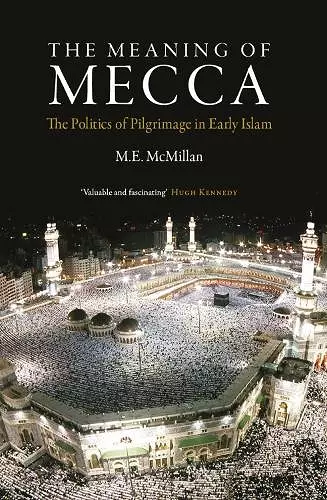The Meaning of Mecca
The Politics of Pilgrimage in Early Islam
Format:Hardback
Publisher:Saqi Books
Published:20th Sep '11
Currently unavailable, and unfortunately no date known when it will be back

The hajj, the fifth pillar of Islam, is a religious duty to be performed once in a lifetime by all Muslims who are able. The Prophet Muhammad set out the rituals of hajj when he led what became known as the Farewell Hajj in 10 AH / 632AD. This set the seal on Muhammad's career as the founder of a religion and the leader of a political entity based on that religion. The convergence of the Prophet with the politician infuses the hajj with political, as well as religious, significance. For the caliphs who led the Islamic community after Muhammad's death, leadership of the hajj became a position of enormous political relevance as it presented them with an unrivalled opportunity to proclaim their pious credentials and reinforce their political legitimacy.
Endorsements: 'The history of the pilgrimage to Mecca stands out as the most important understudied topic in Islamic history, particularly for the pre-Ottoman period. M.E. McMillan has written an impressive foundational study covering the Rashidun and Umayyad periods. Hopefully it will inspire further work of an equally high standard.' Richard W. Bulliet, Professor of History, Columbia University "The Hajj is central to the Muslim experience and yet the history of this great institution has been very little studied. This book provides a valuable and fascinating insight into the experience of the Hajj in the early Islamic period and how the leadership of the pilgrims came to acquire a major political importance in the Umayyad caliphate. This new approach will be of great interest both to historians of the early Islamic world and those who want to understand the evolution of this great religious event." Hugh Kennedy, professor of Arabic, School of Oriental and African Studies
ISBN: 9780863564376
Dimensions: 240mm x 160mm x 27mm
Weight: 424g
196 pages